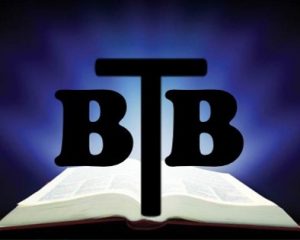What do we mean by synoptic gospels?
The synoptics are the letters or epistles written by the Apostles Matthew, Mark, and Luke. They exclude the gospel of John for many reasons but mainly because the Apostle John did not include the parables of Jesus and focuses on the identity and divinity of Christ. This has resulted in Johns gospel being described as the ‘spiritual gospel’ by Early church father Clement of Alexandria.
The word ‘synoptic’ according to the Collins dictionary means ‘of or constituting a synopsis; presenting a general view or summary’
Some when we refer to the synoptic gospels we are meaning the gospels that refer or include similar events. This is why Matthew, Mark, and Luke are included in this description as they report the life of Jesus of Nazareth including events and miracles that took place with many events confirmed throughout each of their epistles.
Events repeated in the synoptic gospels include…
- Jesus heals the paralyzed man (Matthew 9:1–8, Mark 2:1–12, Luke 5:17–26)
- Jesus eats with sinners and tax collectors (Matthew 9:9–13, Mark 2:13–17, Luke 5:27–32)
- Jesus is questioned regarding fasting (Matthew 9:14–17, Mark 2:18–22, Luke 5:33–39)
- Jesus healing on the Sabbath (Matthew 12:1–14, Mark 3:1–6, Luke 6:1–11)
- Give unto Caesar (Matthew 22:15–22, Mark 12:13–17, Luke 20:20–26)
- Marriage at the resurrection (Matthew 22:23–33, Mark 12:18–27, Luke 20:27–40)
- Whose son is the messiah? (Matthew 22:41–46, Mark 12:35–37, Luke 20:41–44)
- Jesus warns against hypocrisy (Matthew 23:1–12, Mark 12:38–40, Luke 20:45–47)
Difficulties for scholars in the synoptics
Many scholars pour contempt on the traditional claim that the gospels were written solely by the apostles in separation from their peers. This is mainly due to the fact that many accounts seem to be written word-for-word as in the following examples.
| Matthew 9:6 | Mark 2:10–11 | Luke 5:24 |
| “ ‘But so that you may know that the Son of Man has authority on earth to forgive sins….’ Then he said to the paralytic, ‘Get up, take your mat and go home.’ ” | “ ‘But that you may know that the Son of Man has authority on earth to forgive sins….’ He said to the paralytic, ‘I tell you, get up, take your mat and go home.’ ” | “ ‘But that you may know that the Son of Man has authority on earth to forgive sins….’ He said to the paralyzed man, ‘I tell you, get up, take your mat and go home.’ ” |
Their arguement would be that if 3 different people saw the same event and then wrote about it in a journal, it would be virtually impossible for them to repeat the event word for word as in the examples given in Matthew, Mark, and Luke.
This however did not seem to bother the early church fathers at all, indeed Augustine just assumed that Mark and Luke ‘borrowed’ their accounts from Matthew and seen no problem with this arrangement.
When it comes to a timeline of the synoptics it is generally accepted that Matthew was first, Luke was second and Mark was third.
As regards the duplication issue. In my own view I have to say that it is simply a reminder that The Lord God did not write the Bible! This collection of 66 books and letters we call the Bible was in fact written by men (and women?) – under the inspiration and guidance of God. That is to say that The Lord God inspired folks to write the Bible accounts in their own words but under the guidance of the Holy Spirit so that other readers like themselves could understand and relate to them.
A somewhat simplistic view by myself perhaps, but then again I am no theologian, and it is a view I can live with until that great day when all will be explained in full technicolour!
So how do you summarise the three gospels of Matthew, Mark, and Luke?
The 3 synoptic gospels lay out in similar or identical writing the works and ministries of Jesus including the miracles, healings and parables. This is in contrast to the gospel of John which is a stand-alone account of the life of Jesus as Messiah.
The issues involved in the timeline or content of the gospels themselves are perhaps of some concern to the scholars and theologians, however if we look on the accounts as Augustine and the other early church fathers did, then the apparent repetition of the events pale into insignificance – or perhaps just another mystery to ponder upon.
Please click on the hyperlinks for brief individul summary articles of Matthew, Mark, Luke, and John

